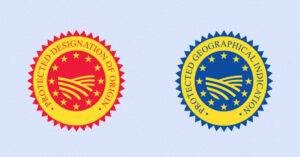
16 Jun Avanti! on the protection of GIs in the EU
In early May, the EU Parliament and Council concluded a political agreement to protect geographical indications (GIs) for craft and industrial products, such as ceramics from La Bisbal or from Talavera, embroidery from Lagartera, inlaid pottery from Granada, damascene from Toledo, cuckoo clocks, etc.
Currently, although some EU countries do protect these types of GIs, there is no EU-wide protection, as there is for agricultural products and foodstuffs, wines and spirits. GIs for the latter products are called “agri GIs” because of their agricultural component, while those for craft and industrial products are known as “non-agri GIs”.
The agreement refers to the proposed Regulation which was presented in April 2022, which in turn was the result of consultations with both states and EU public opinion on this issue (we already commented this in our former article Geographical Indications (GIs): the turn of the screw?) and experts in this sector. This agreement on “non-agri GIs” is characterised by the following:
- It shares the approach to the regulation of “agri GIs”, as it will be possible to obtain a single protection title that will be valid in all EU countries. This EU title will replace any national titles that may exist and both Protected Designations of Origin (PDO) and Protected Geographical Indications (PGI) will be registered.
- It foresees a two-stage registration system, the first stage taking place at Member State level, and the second, on the decision to register, at EU level. While the responsible body for “agri GIs” is the EU Commission, for “non-agri GIs” it will be the EUIPO – although it is clarified that the Commission should also be able to take over the functions-. For EU countries that do not have a national GI authority, there will be a special one-step registration system, i.e. directly with the EUIPO.
- Member States will be able to charge an application fee, which should be lower for micro, small and medium-sized companies, but the EUIPO will not charge any fee – except for countries with a direct registration system with the EUIPO-.
- EUIPO will provide a fully digitalized GI application system, an ad hoc registry and an information and alert system on online misuse of GIs, including illegal domain names. The EUIPO, which is entirely self-financing, will manage this from its budget, so this new regulation will have no impact on the EU budget.
- Producers of these GIs will be able to benefit from the Lisbon System, which allows for easy and less costly registration outside the EU. Although the EU adhered to the Geneva Act of the Lisbon Agreement, at present and due to a lack of harmonization of laws, EU producers cannot yet benefit from the system, a deficiency that this Regulation will supply. In this framework, the EUIPO will be the competent authority, as it is already in the Madrid System for international trademarks designating the EU.
- A simpler, streamlined control system is foreseen, with the possibility for producers to submit a self-declaration of compliance with the conditions of the specification and of having passed the necessary controls.
- the PDO and PGI stamps for “non-agri” GIs will be identical to those for “agri GIs” i.e.

Next steps: if the EU Parliament and Council formally approve this agreement, which is expected to happen this next autumn, this Regulation will enter into force two years later (November 2025).
My consideration: although the number of possible applications for “non-agri GIs” is predicted to be low, around 300 GIs over the next ten years -compared to the more than 3000 “agri GIs” currently on the EU register- it will be a first step for the EUIPO, in terms of GI registration authority. The regulation of “agri GIs” is also in the midst of a reform process, with a proposal for a Regulation which also mentions the EUIPO as a possible management body, although there is still much debate about this… to be continued….
Author: María Ceballos, lawyer at CURELL SUÑOL



